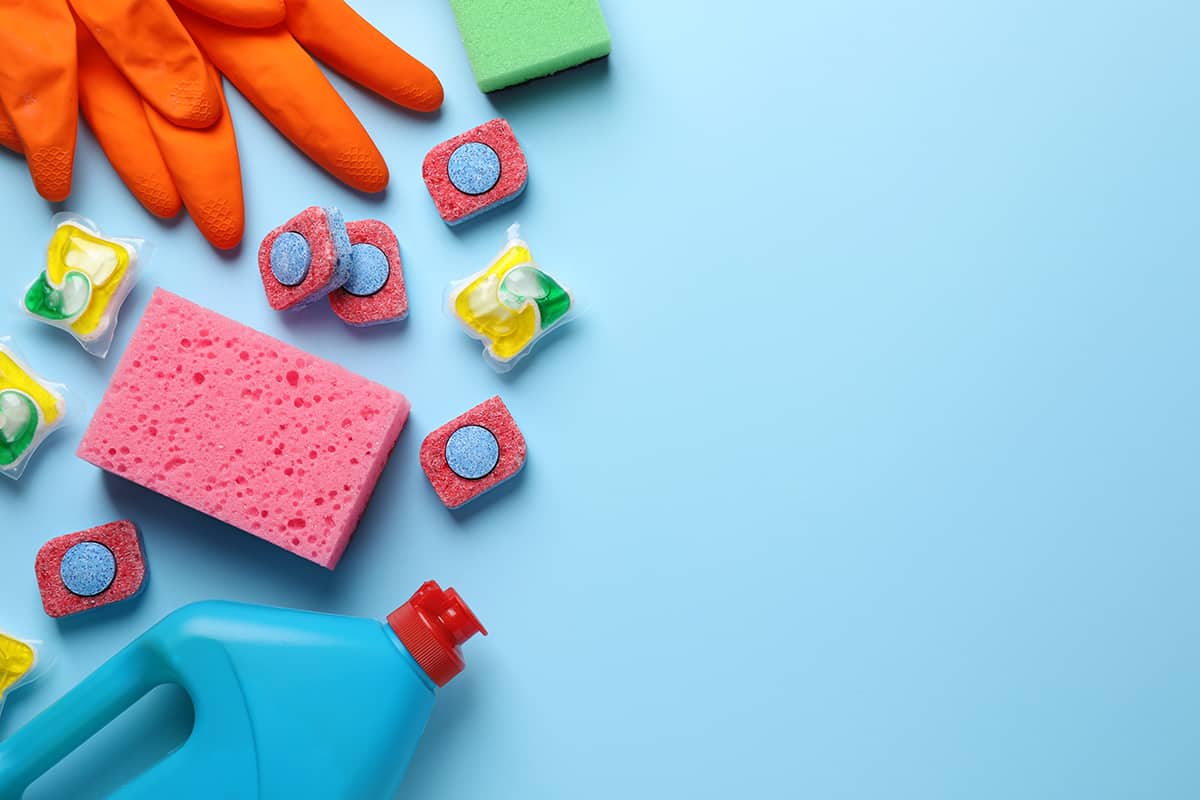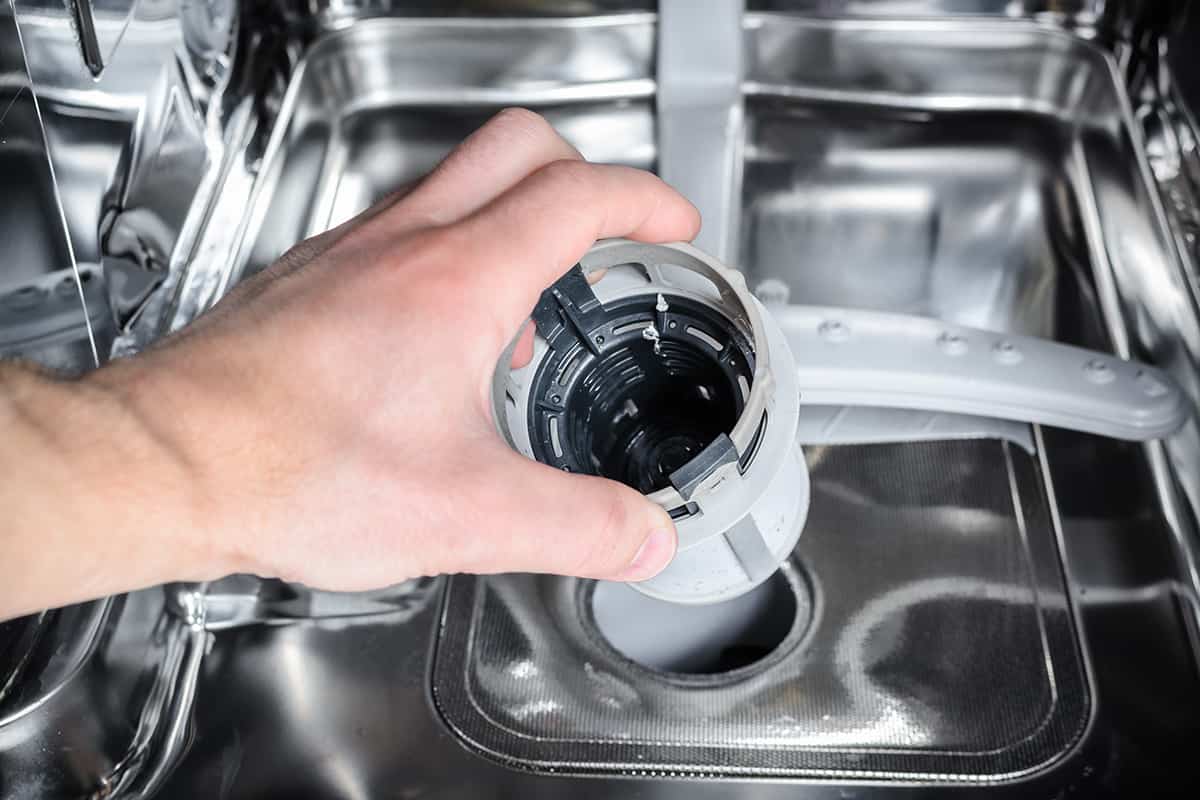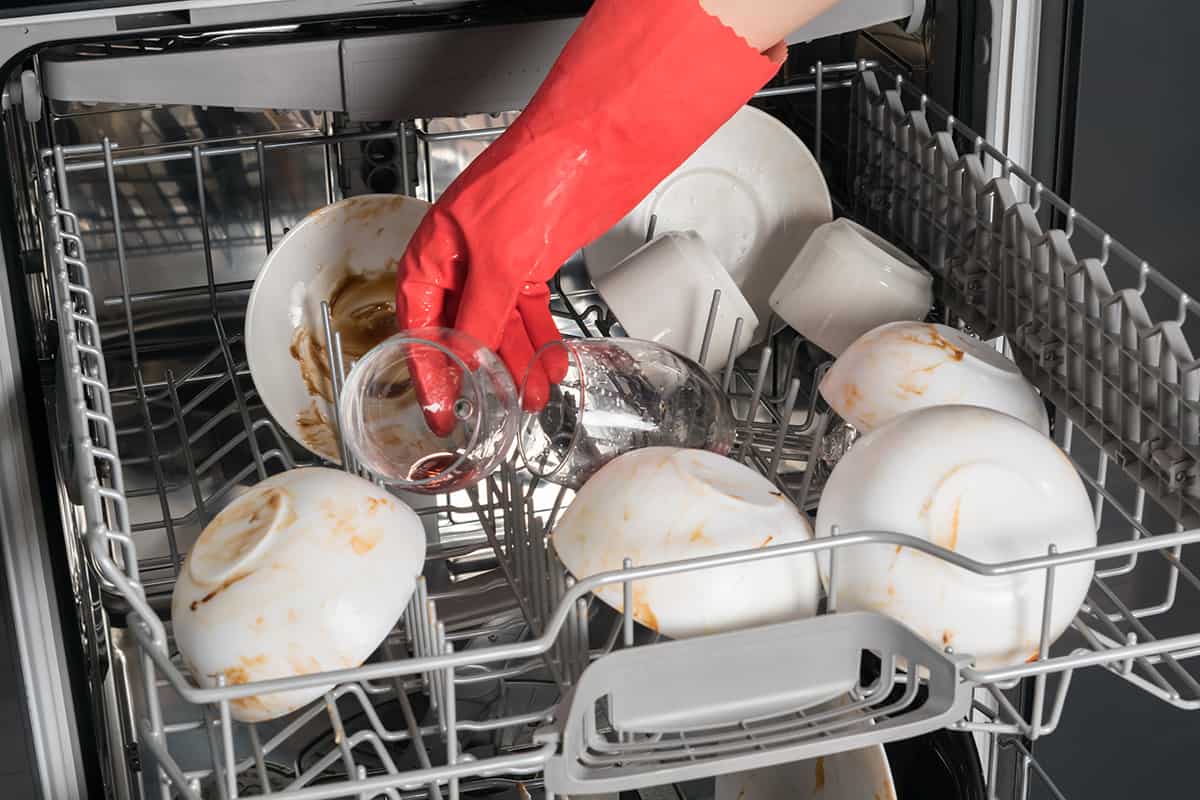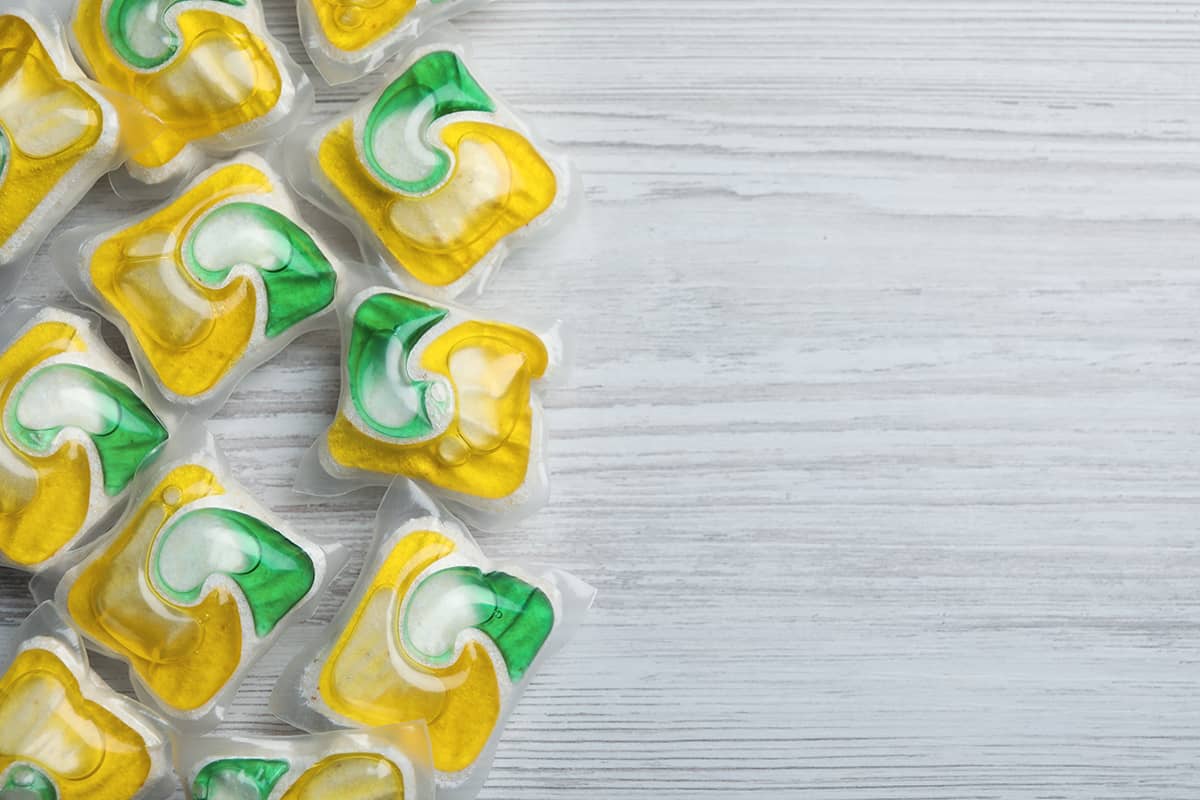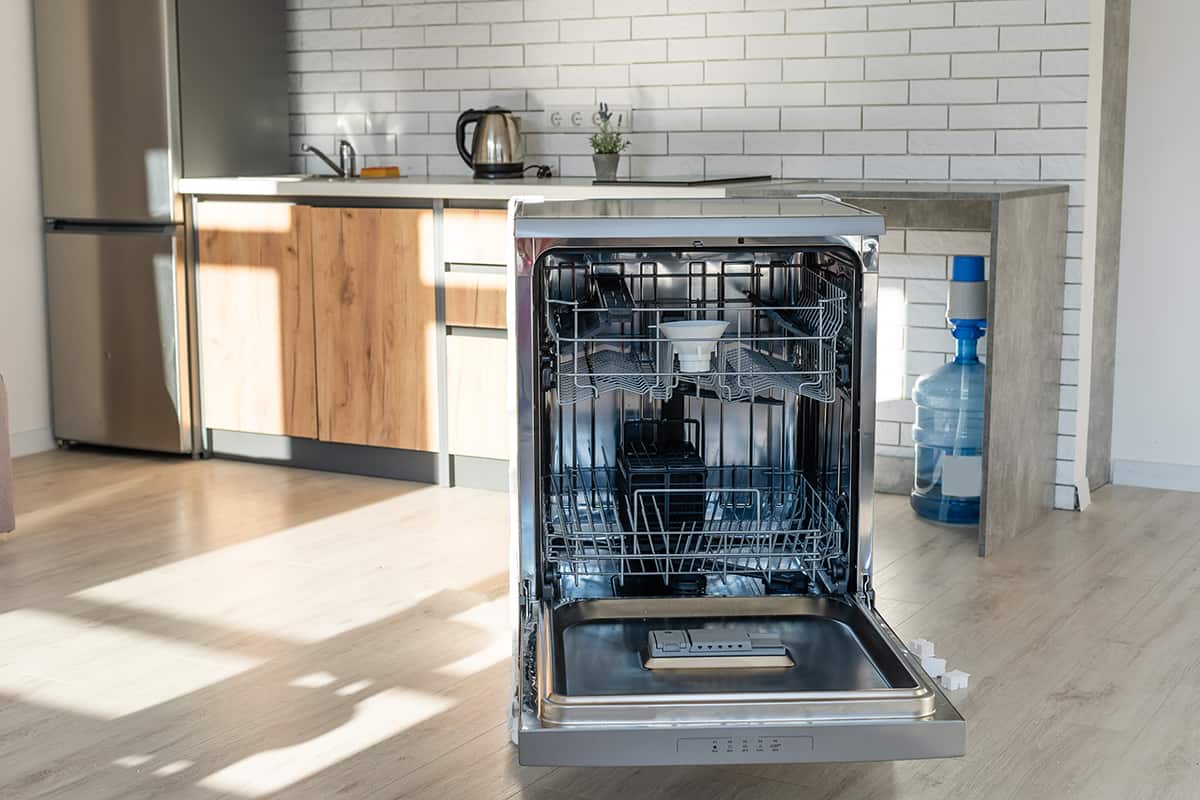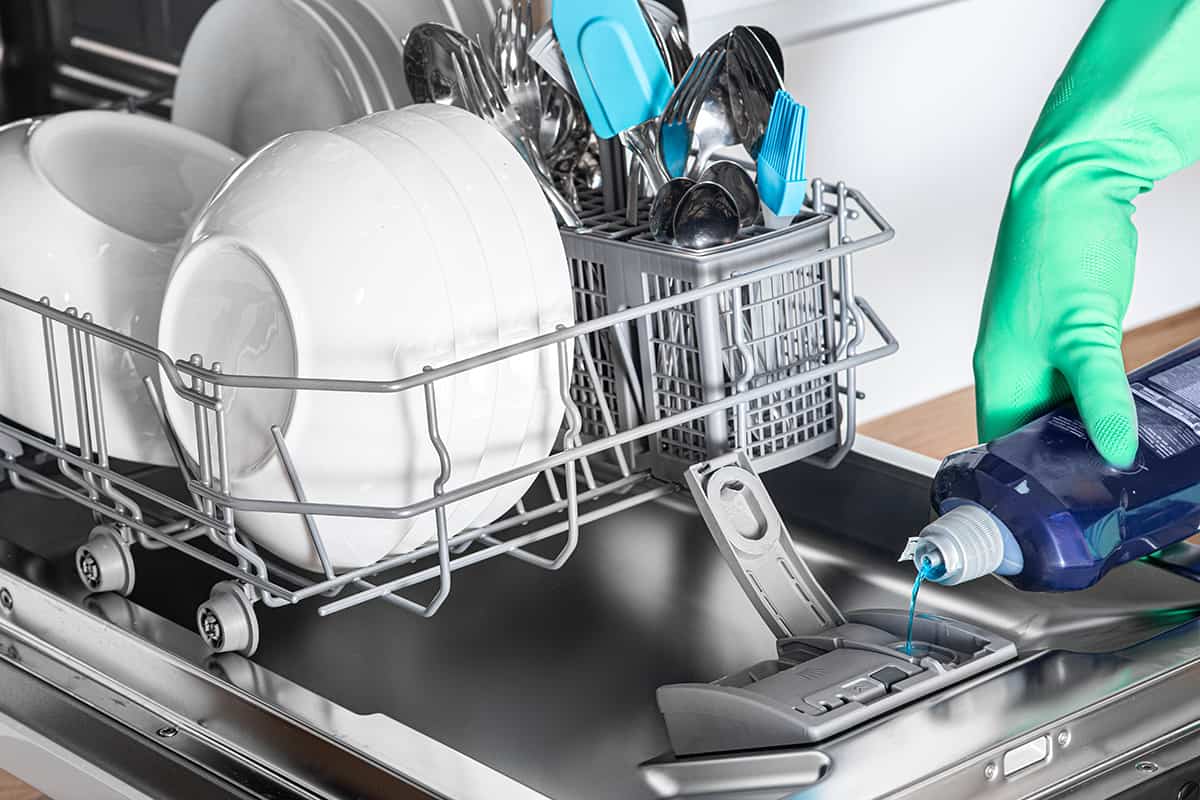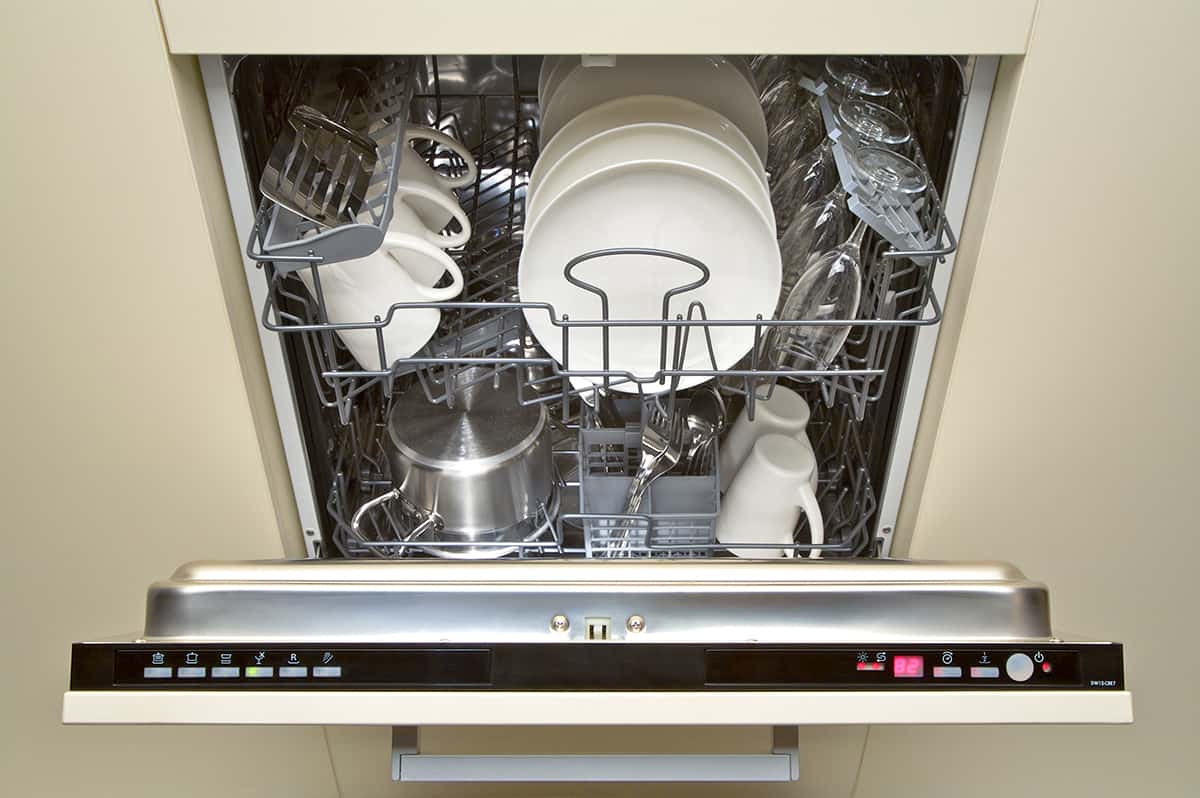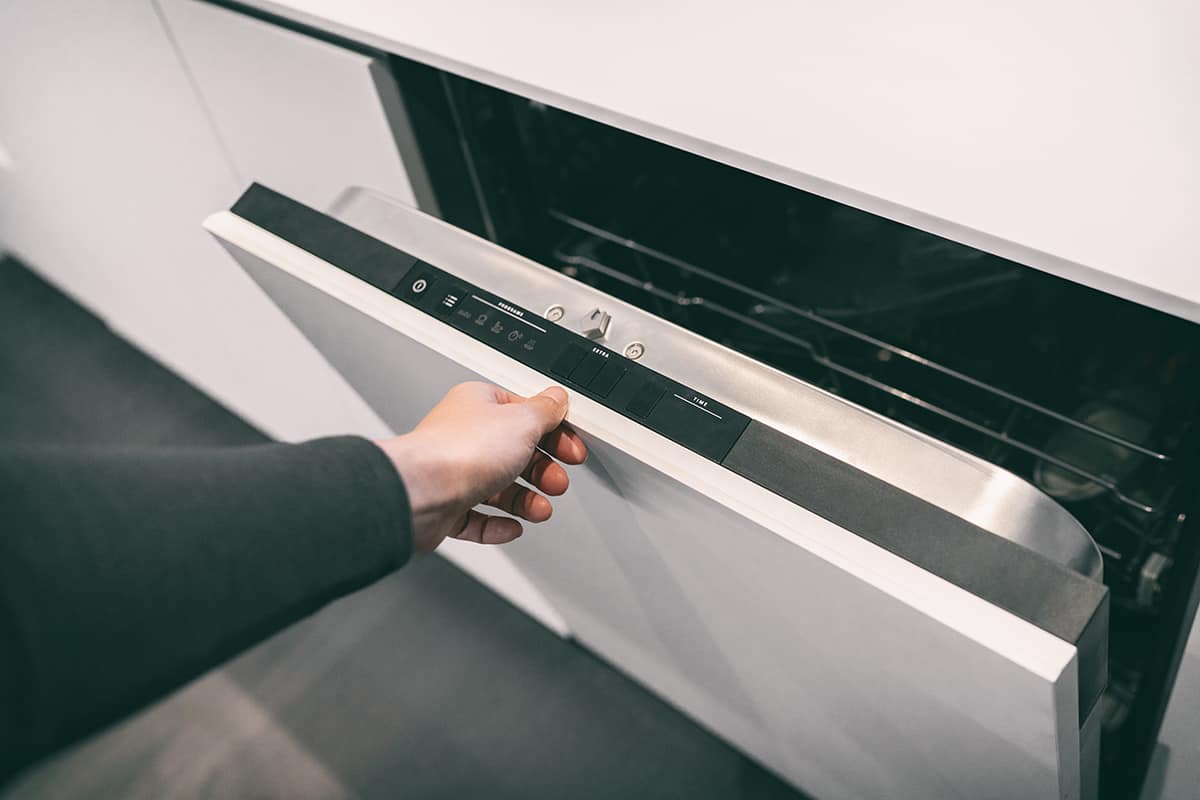Before you run your dishwasher, make sure the detergent dispenser has enough detergent packed in. On the off-chance you don’t have any and don’t want to make a quick trip to the supermarket, you may find yourself asking whether you can use anything else in place of dishwasher detergent.
Every household has a superhero that keeps dishes sparkling clean – the dishwasher. But, just like superheroes need their tools, dishwashers need clean filters to function effectively. Over time, these filters can get clogged with food particles and residue, reducing the machine’s performance. That’s why it’s crucial to know how to change a dishwasher filter, ensuring your dishes always come out spotless.
In short, it’s not necessary to rinse dishes before putting them in the dishwasher, as modern dishwashers and detergents are designed to handle food particles. However, scraping off excess food is recommended to prevent clogs and ensure optimal cleaning performance.
Dishwashers are amazing machines that help us keep our dishes clean with minimal effort. They use a combination of water, detergent, and heat to wash, rinse, and dry our dishes, glasses, and silverware. This modern convenience has become a staple in many homes, making our daily lives easier and more efficient.
Have you ever noticed a foggy or cloudy look on your glasses after running them through the dishwasher? It’s a common problem, and it can be pretty annoying. After all, clean glasses should look sparkling clear, not dull and misty! So, what can you do to stop this from happening in the future?
Just like soap helps clean our hands, dishwasher detergents work to remove food and stains from our dishes. They make sure our plates, glasses, and silverware come out clean and sparkling after each dishwasher cycle. More than just making our dishes look good, dishwasher detergents help keep our homes healthier. Clean dishes mean less chance of harmful germs sticking around.
Joel Houghton invented the first dishwasher in 1850, but it was Josephine Cochrane’s 1886 design that became the basis for modern dishwashers we use today. Her innovative creation was showcased at the 1893 World’s Columbian Exposition, making a big splash and paving the way for the modern dishwasher we know today.
A rinse aid is a liquid additive used in dishwashers to improve drying and reduce water spots and streaks on dishes. While it’s not mandatory, using a rinse aid can enhance your dishwasher’s efficiency and result in cleaner, drier dishes.
Dishwashers are essential appliances in many households, helping us keep our dishes clean and save time in the process. However, over time, your dishwasher can accumulate food particles, grease, and grime, which can lead to unpleasant odors and decreased performance.
The cost of dishwasher installation typically ranges from $100 to $300, depending on your location and the complexity of the job (some estimates may be higher than $2,000). The installation process usually takes about 1 to 3 hours.
Dishwashers are a great addition to any home, making it easier to clean up after meals and save time. Installing a dishwasher might seem like a complex task, but with the right guidance, you can do it yourself. This guide is designed to walk you through the process step by step, so you can install your dishwasher with confidence.
The average cost to repair a dishwasher typically ranges from $150 to $300. This can vary based on a few factors:
Minor issues like a clogged drain or faulty door latch might cost around $100 to $200.
Major problems, such as a broken motor or pump, may cost between $200 and $350.
